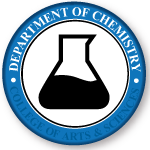Author ORCID Identifier
https://orcid.org/0000-0002-5945-749X
Document Type
Article
Publication Date
3-23-2023
Publication Title
International Journal of Molecular Sciences
Volume
24
Issue
7
DOI
https://doi.org/10.3390/ijms24076023
Abstract
The Janus kinases (JAKs) are a family of non-receptor cytosolic protein kinases critical for immune signaling. Many covalently bound ligands of JAK3 inhibitors have been reported. To help design selective JAK inhibitors, in this paper, we used five model proteins to study the subtype selectivity of and the mutational effects on inhibitor binding. We also compared the Covalent Dock programs from the Schrodinger software suite and the MOE software suite to determine which method to use for the drug design of covalent inhibitors. Our results showed that the docking affinity from 4Z16 (JAK3 wild-type model), 4E4N (JAK1), 4D1S (JAK2), and 7UYT (TYK2) from the Schrödinger software suite agreed well with the experimentally derived binding free energies with small predicted mean errors. However, the data from the mutant 5TTV model using the Schrödinger software suite yielded relatively large mean errors, whereas the MOE Covalent Dock program gave small mean errors in both the wild-type and mutant models for our model proteins. The docking data revealed that Leu905 of JAK3 and the hydrophobic residue at the same position in different subtypes (Leu959 of JAK1, Leu932 of JAK2, and Val981 of TYK2) is important for ligand binding to the JAK proteins. Arg911 and Asp912 of JAK3, Asp939 of JAK2, and Asp988 of TYK2 can be used for selective binding over JAK1, which contains Lys965 and Glu966 at the respective positions. Asp1021, Asp1039, and Asp1042 can be utilized for JAK1-selective ligand design, whereas Arg901 and Val981 may help guide TYK2-selective molecule design.
Recommended Citation
Zhong, H. A., & Almahmoud, S. (2023). Docking and Selectivity Studies of Covalently Bound Janus Kinase 3 Inhibitors. International Journal of Molecular Sciences, 24(7), 6023. https://doi.org/10.3390/ijms24076023
Creative Commons License

This work is licensed under a Creative Commons Attribution 4.0 License.
Files over 3MB may be slow to open. For best results, right-click and select "save as..."


Comments
This is an open access article licensed under the CC BY license.